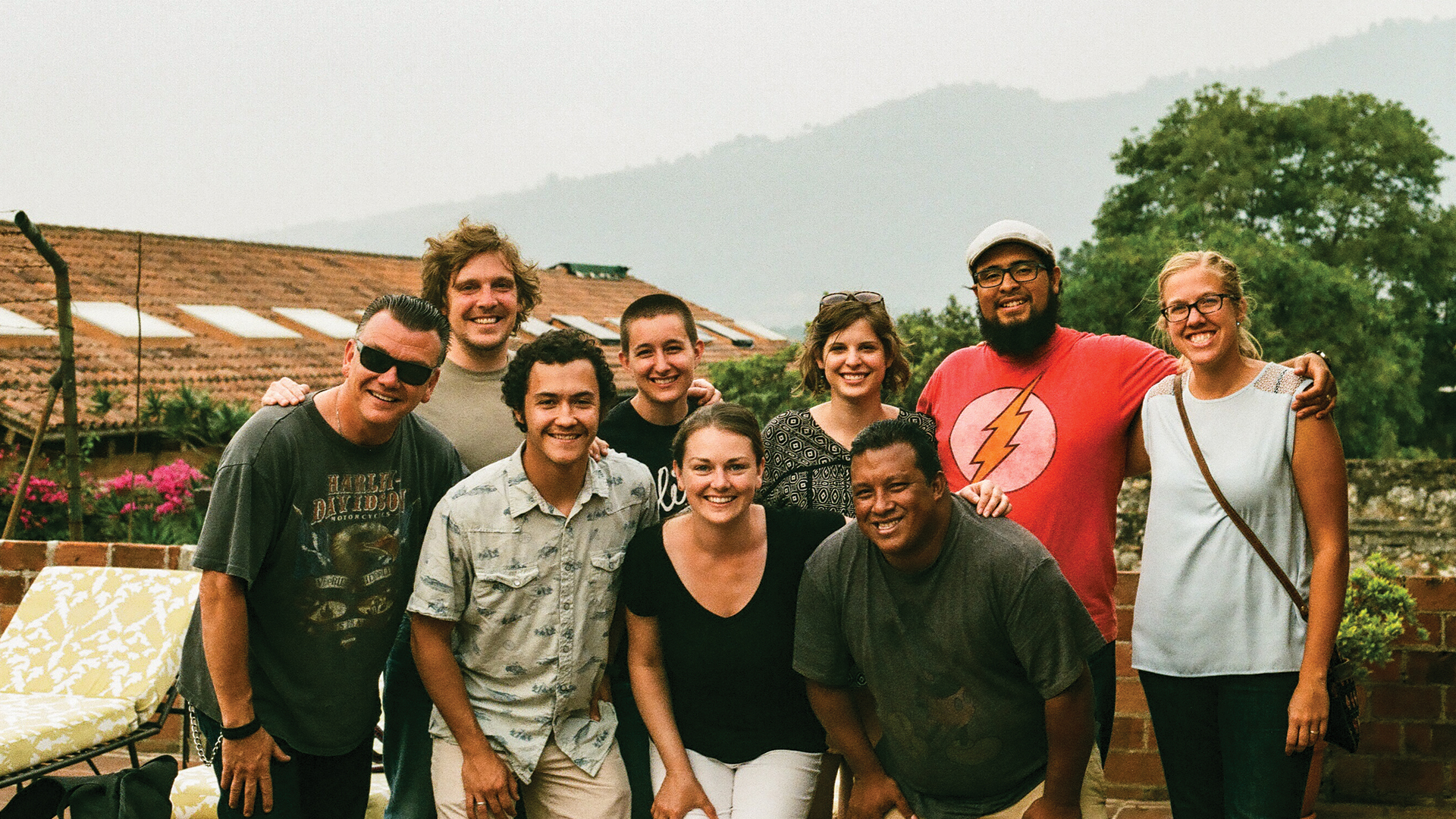Internal transformation—when it is holistic, embodied, and attuned to both the nature of our calling and the needs of our world—must always lead to outward service. This is why transformative learning cannot be contained to a classroom. Grounded in the integration of text.soul.culture, we seek to create space for students to gain real-world experience in a range of settings to help sharpen and expand the ideas they explore in lectures, readings, and papers.
To that end, later this month five students will travel to Kenya for the fourth annual Engaging Global Partnerships class with Dr. Ron Ruthruff, Associate Professor of Theology & Culture, and Cheryl Goodwin, Director of Institutional Assessment & Library Services. The vision for this class grew out of Ron’s involvement with the Center for Transforming Mission and Street Psalms, an international network of leaders who facilitate grassroots education and training in the particular context of local communities. In his work around the world, Ron always dreamed about being able to invite students in the United States to come meet the “entrepreneurial theologians” he was meeting and partnering with. Now, as a faculty member at The Seattle School and a Senior Fellow with Street Psalms, Ron’s continued relationships with pastors, theologians, activists, and social entrepreneurs around the world have helped him develop courses that are far more global and far more of a lived experience than what is typically offered in higher education, which often trends toward self-contained intellectualism rather than practical, engaged learning.
In the Engaging Global Partnerships class, students are invited to let their assumptions, beliefs, and practices be challenged and clarified by the stories of a place and the people who serve it. Beginning in 2016, Ron has traveled with students to learn from his friends in Guatemala. This is the first year that the class will be traveling to Kenya. In the months leading up to the class, the students have been wrestling with readings and discussions to help deepen and contextualize their time together. “We’re taking a deep look at the history of colonialism and religion, and the relationship between a place and the people who inhabit it—especially in places of wounding,” says Dr. Ruthruff. “How can we enter those wounds in a way that is honoring to others’ stories and also helps us reimagine our shared future?”
“We’re taking a deep look at the history of colonialism and religion, and the relationship between a place and the people who inhabit it—especially in places of wounding.”
By asking these questions and witnessing the “heart, hurt, and hope” of a particular place, students are challenged to reconsider categories including partnership, service, culture, incarnation, and mission—an essential part of discerning what their own calling might look like in their local context. As he guides students in that process, Ron is inspired by David Bosch’s work in Transforming Mission and Martin Kähler’s assertion that “mission is the mother of theology.” It’s not the other way around, says Ron: “Theology emerges as we listen to others.”
Of course, if you hear about a group of American students traveling internationally and talking about mission, you might already have certain assumptions or images in mind. That’s why Ron is quick to clarify that, “This isn’t a mission trip, it’s a vision trip. There won’t be any air-conditioned buses, and we won’t be digging a hole in a community that some youth group has to come fill in three months later. This isn’t about us bringing our program overseas or placing our visions on others. I hope it’s about learning to listen well, engage with our shared history, and dream together about a vision for something new.”
Photo by Jesse Smith of Downtown Scout Photography.


